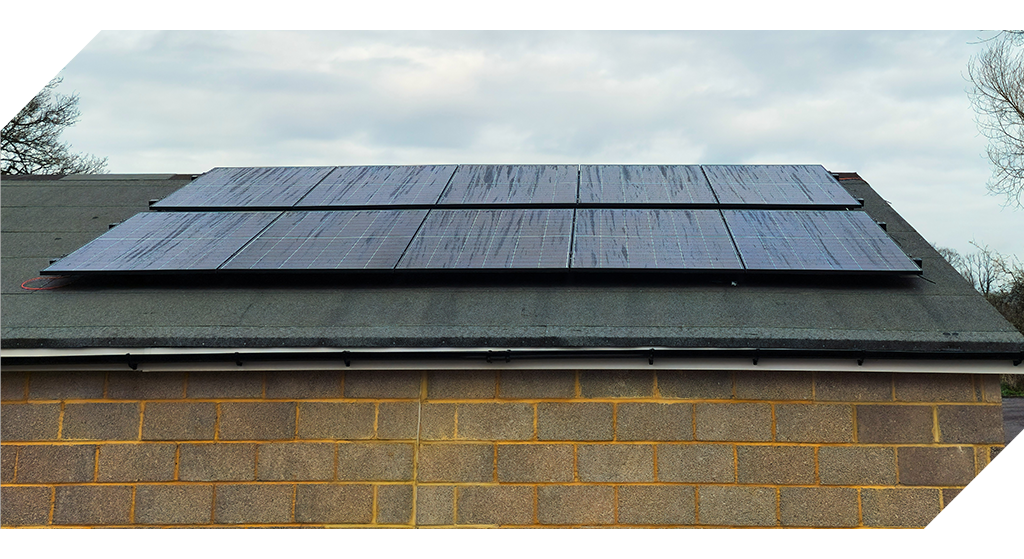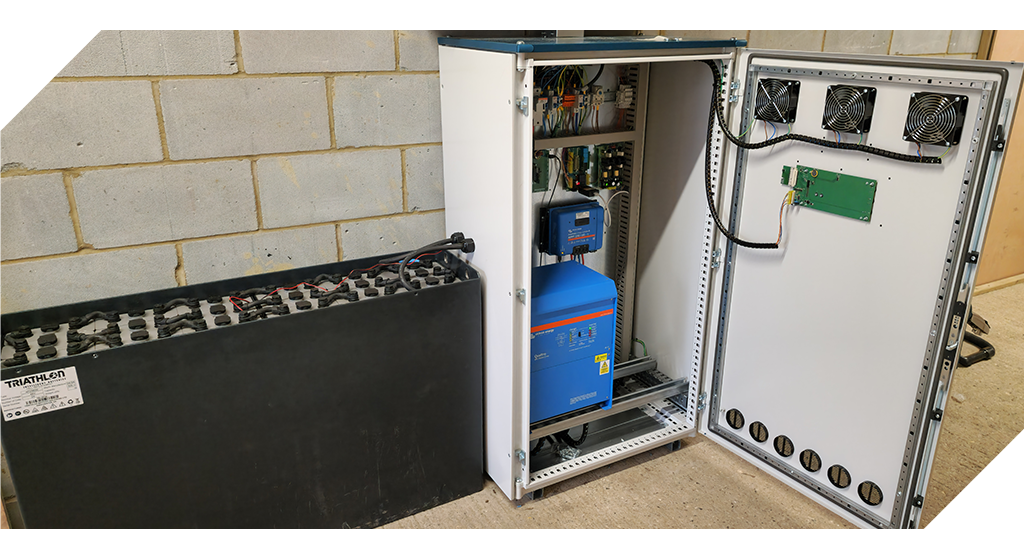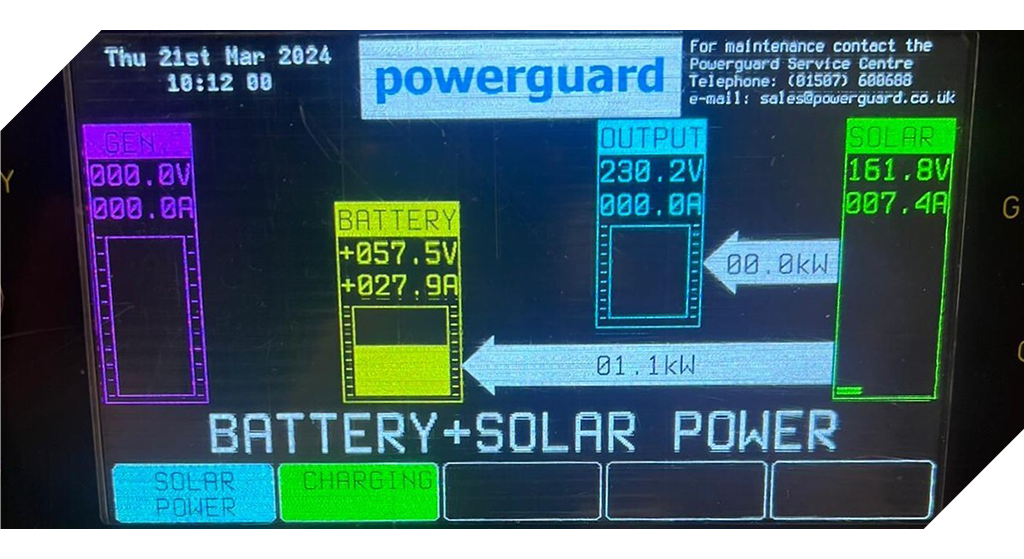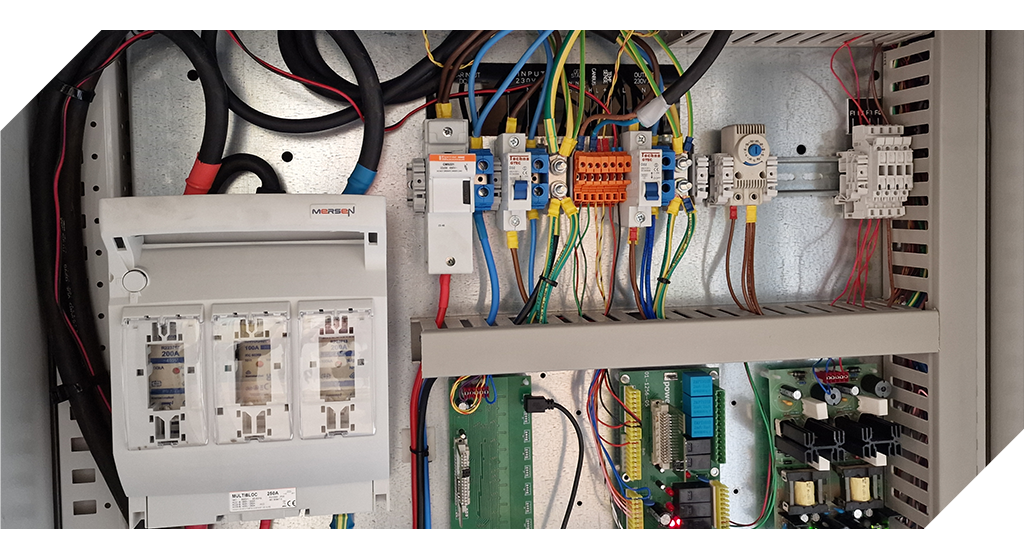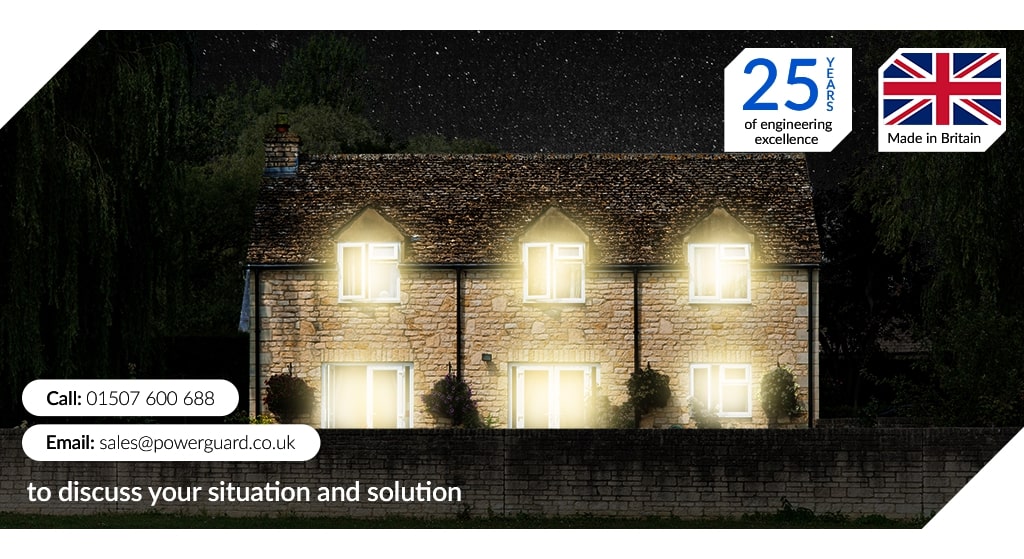This case study demonstrates the feasibility and effectiveness of off-grid solar power systems for remote storage facilities, offering long-term financial savings and energy security.
Jill Carragan operates a storage business in Sussex, UK. They required power for a cabin on site as there is no mains electricity available at that location. This is a critical facility for storing equipment and goods safely and securely. Located far from a reliable grid connection, the site faced frequent power supply issues and was reliant on diesel generators, which resulted in high fuel costs and ongoing maintenance requirements.
To resolve these challenges and improve operational efficiency, they opted for an off-grid solar power system that could provide consistent energy while reducing reliance on fossil fuels.
The system Powerguard installed consisted of a solar panel array, a battery storage unit and a bespoke control system to ensure energy efficiency and reliability.
This case study discusses the project’s challenges, the solution implemented and the benefits realised by transitioning to off-grid power.
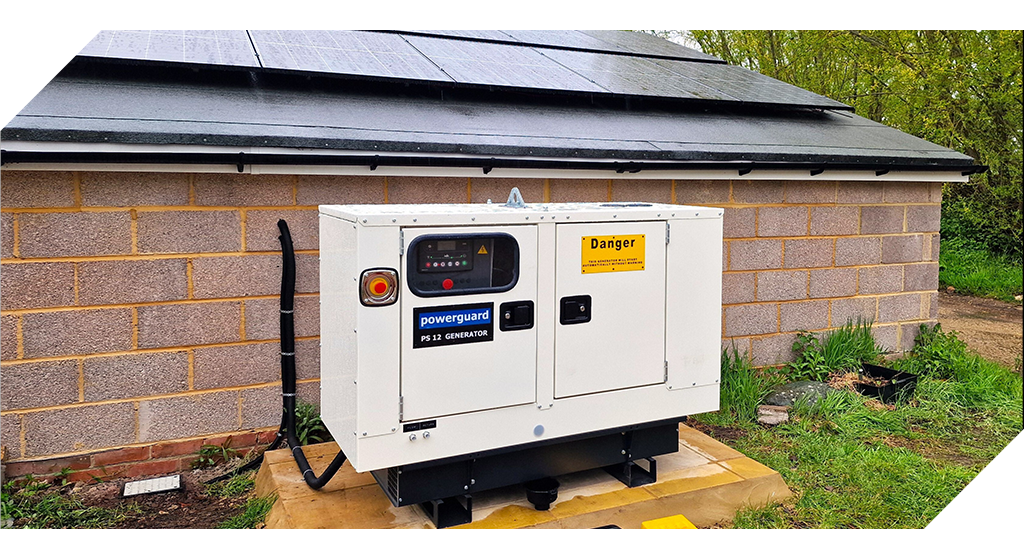
Contents
- The Off-Grid Power Supply Challenge
- The Powerguard Solution
- The Powerful Results
- Conclusion: Why Powerguard?
The Off-Grid Power Supply Challenge
Carragan’s required a dependable power source to support essential operations, including:
- Security Systems: Cameras and alarms to monitor and protect stored goods.
- Lighting: Outdoor and indoor lighting for safety and operational purposes.
- Other Operational Equipment: Power tools and other occasional equipment used on-site.
- Amenities: Such as heating, a kettle (because everyone needs a cuppa to function properly), computers and charging points.
Prior to the installation of the Powerguard’s sustainable off-grid solar power solution, the site was heavily reliant on diesel generators. However, the use of diesel fuel presented several issues:
- High Operating Costs: The costs of running the generators were significant due to rising fuel prices and frequent maintenance.
- Unreliable Power Supply: Generator failures often led to periods of downtime, leaving the site vulnerable without operational security or lighting.
- Environmental Impact: The use of diesel resulted in substantial carbon emissions, which was against the company’s sustainability objectives.
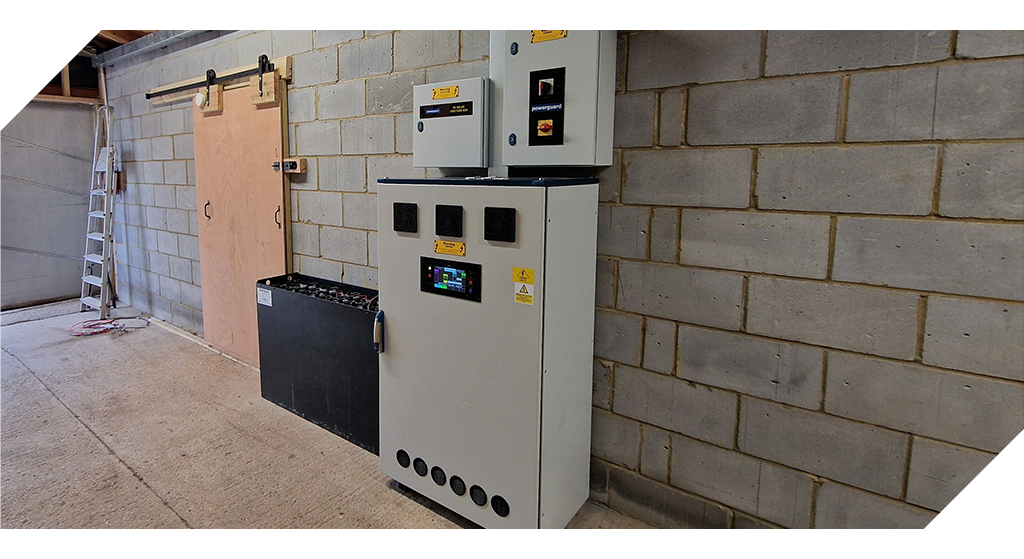
The Powerguard Solution
We put together a plan to build a system to power the property completely off-grid, utilising the existing building’s roof for the solar panels
This sustainable off-grid solar power system was designed, built and installed by our expert energy engineers – to ensure consistent energy supply, to minimise operational costs and to reduce environmental impact.
After a full energy audit, we advised that the predicted energy use would require a 15KVA system, 930Ah 48V battery, 18.5 KVA Gen set and 5.04KW of solar consisting of 12 panels.
The system included the following components:
Solar Panels:
System Capacity: A solar panel array was installed on the roof of the storage structure, with additional ground-mounted units. The total system capacity was designed to generate around 8-10 kW during peak sunlight hours.
Energy Production: The panels were expected to produce approximately 30-40 kWh per day during sunny conditions, more than enough to cover the site’s average daily energy needs.
Battery Storage:
Battery Bank: A high-capacity battery bank was installed to store the surplus energy generated during the day. This provided backup power during the night and periods of low sunlight, ensuring 24/7 operational capacity.
Capacity: The battery system was sized to store 30 kWh of energy, providing enough backup power for continuous operations even during extended periods of low solar generation.
15 kVA Power Control System:
The control system regulated the distribution of power from the solar panels and battery to the site’s critical systems, including security cameras, lighting and operational equipment. It ensured that priority was given to essential systems and optimised energy use to avoid wastage.
Smart Energy Management System (EMS):
The custom-built EMS allowed for real-time monitoring of energy production, storage and consumption, enabling adjustments to be made to ensure the system ran efficiently.
Backup Diesel Generator (Emergency Only):
Although the system was designed to operate entirely off-grid, a small diesel generator was kept on-site for emergency backup during prolonged periods of low sunlight or system maintenance. Its use was expected to be minimal, further reducing fuel consumption and emissions.
The Powerful Results
This sustainable off-grid solar power system provided the following benefits:
Energy Independence:
The storage site became fully self-sufficient, with over 90% of its energy needs being met by the solar and battery system. The reliance on diesel generators was minimised, with the backup generator used only in rare circumstances.
Significant Cost Savings:
The switch to off-grid solar power resulted in an estimated 80% reduction in fuel costs, saving the company approximately £5,000 annually. Maintenance costs for the diesel generator also decreased significantly due to its reduced usage.
Improved Energy Reliability:
The system provided a reliable source of energy, ensuring that security systems, lighting and other essential equipment remained operational around the clock. The use of battery storage meant that power was always available, even during periods of low solar generation.
Sustainability:
The site’s carbon footprint was drastically reduced as the need for diesel fuel was dramatically reduced. This helped the company align with its sustainability goals and contribute to its corporate responsibility objectives.
Conclusion: Why Powerguard?
The off-grid solar power solution implemented at Jill Carragan’s Sussex site successfully addressed the challenges of unreliable grid access, high operational costs and environmental sustainability.
The solar panels, battery storage and custom-built control system provided a cost-effective alternative to extending the grid – and now provides a reliable energy supply, ensuring the site’s essential systems were powered consistently while reducing the reliance on diesel fuel.
If the Carragan had paid for a grid connection they would not have been able to recoup that expense for a long time, if ever.
Remember: Powerguard off-grid solar power systems do not feed into the grid, so the power you generate is all yours. Also, our systems do not have any restrictions, so you can generate as much energy as you need.
We are experts in off-grid systems small and large, trust us with your power supply and don’t throw money away with a grid connection.
Get in touch with us to find out more about what we can offer you!
Our Products
- Water Pumps
- Industrial (Three Phase)
- Industrial (Single Phase)
- Residential
- Portable
- Off-Grid Power Systems
- Central Battery Systems for Emergency Lighting
- Mini grid & EV charging
- Marine Systems
- Renewable Energy
- Generator & Control Systems
- Uninterruptible Power Supply (UPS) Systems
- Inverters & Inverter Systems
- Battery Chargers Systems
- Diesel & Gas Generators
